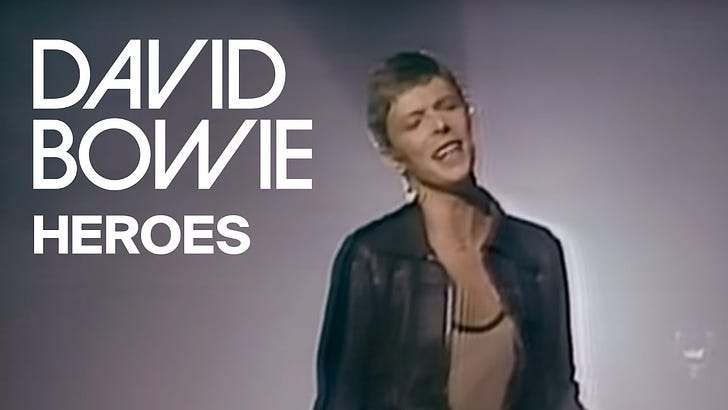David Bowie Talks 'Heroes'
"Those Freaks Treating Me Like I Was Ziggy Stardust...I Was So Confused" (1977)
I’m still working off the jet lag from 10 days in Ireland. I brought a notebook, I bought a notebook, but took few notes. Maybe it’s because writing is so ingrained in the places I visited that I didn’t want to seem a poseur. Or maybe I was just on vacation. I’ll write more this week for paid subscribers while memories are fresh.
But some memories are not fresh to me at all. When I returned to social media after two revitalizing weeks away from the noise, I saw that my colleagues and friends at the Rock’s Back Pages library in London, where about 100 of my early articles from myriad sources are stored for viewing and syndication, had found this feature story from Newsday, which ran November 27, 1977. You would think I would remember interviewing David Bowie, and I did: When he was about to appear on Broadway in “The Elephant Man” (1980) and possibly when he was promoting the movie “Merry Christmas, Mr. Lawrence” (1983). But I don’t remember talking in detail about any of his essential …
Keep reading with a 7-day free trial
Subscribe to Critical Conditions by Wayne Robins to keep reading this post and get 7 days of free access to the full post archives.



